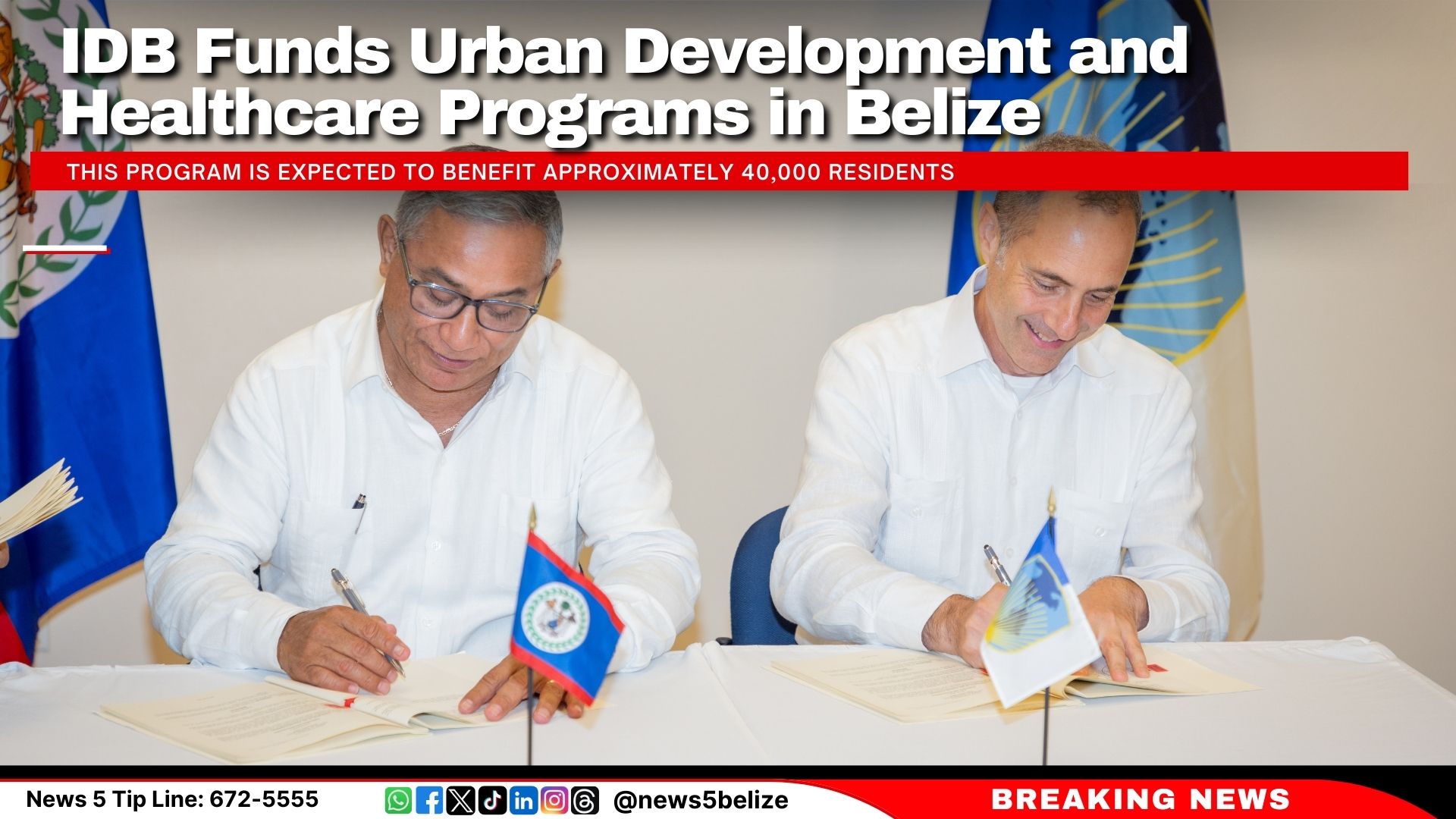On Friday, the Inter-American Development Bank (IDB) and the Government of Belize finalised major funding agreements during the Third High-Level Dialogue of the Regional Climate Change Platform of Finance and Economy Ministries in San Pedro, Ambergris Caye. The agreements, signed by IDB Executive Vice President Jordan Schwartz and Belizean Prime Minister John Briceño, involve substantial loans and grants aimed at transforming urban infrastructure and healthcare services in Belize.
The IDB is providing US$10 million in funding for a sustainable urban development program designed to upgrade infrastructure and improve urban services in northern Belize, including the municipalities of Orange Walk, Corozal, and San Pedro. This program is expected to benefit approximately 40,000 residents and includes an additional US$2.5 million in non-reimbursable funds.
The IDB has allocated US$17.36 million to a healthcare initiative. This includes a US$7 million loan from the IDB, a US$7 million loan from the Korean Infrastructure Development Co-Financing Facility for Latin America and the Caribbean, and US$3.36 million in non-reimbursable financing from the IDB Grant Migration Facility. The program will serve around 300,000 people, including 37,000 migrants and 42,000 indigenous individuals. It aims to bolster the Primary Healthcare model, focusing on reproductive, maternal, neonatal, and child health, as well as noncommunicable diseases, emergency services, and surgeries. Additionally, it will address gender-based violence and mental health issues.
Prime Minister Briceño highlighted the significance of these agreements, stating, “These new partnerships with the IDB represent vital steps in our Government’s development strategy. Investments in healthcare and urban development will enhance the quality of life for our citizens and contribute to a healthier and more prosperous Belize.”
The funding approvals followed endorsements by the IDB Board of Directors in May and June 2024, and by the National Assembly of Belize in July 2024. These initiatives are set to play a crucial role in Belize’s ongoing efforts to improve infrastructure and healthcare services across the nation.
